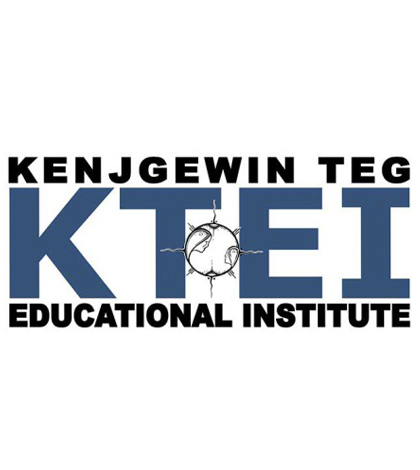MANITOWANING—Since the days of the Greek philosophers, pen dialogue and discussion in groups has been recognized as an immensely powerful tool for the expansion of knowledge and learning. Power of sharing knowledge through discussion has been deftly harnessed in the concept of science cafés, of which the Canadian Institute of Health Research’s (CIHR) innovative Café Scientifique is a marvelous example.
The Manitoulin Central and Assiginack Family Health Teams partnered with the Debajehmujig Storytellers in November to bring a version of the Canadian Institute of Health Research’s (CIHR) innovative Café Scientifique to the Island.
Topics for discussion in what is planned as the first in a series Café Scientifique gatherings at the Debajehmujig Creation Centre site included memory loss, cancer and end of life (palliative) care, under the general group heading of ‘Elder Care.’
Before the presentations got underway, Debajehmujig Storytellers executive director Ron Berti introduced the moderator, Chris Mara (the senior math and science teacher at Wasse Abin High School in Wikwemikong who had brought a number of his students along for the experience) and Sandra Pennie, who acted as timekeeper for the event.
Mr. Mara in his turn recognized the efforts of Café Scientifique organizer Nick Head-Petersen, “without whom none of us could have pulled this off.”
Under the gentle ministrations of Mr. Mara and kept to schedule by Ms. Pennie, the four guest lecturers delivered short presentations on the topic of elder care. The moderator introduced Melodie Wawia, project coordinator at Lakehead University for education and research on aging and health, who spoke on ‘Improving end of life care in First Nations communities’ and attended the café via a virtual link over the Internet; Dr. Kristen Jacklin PhD, associate professor of medical anthropology at the Northern Ontario School of Medicine (NOSM), who delivered a presentation on dementia care in First Nations communities; Cindy Peltier of Wikwemikong, who is in the fourth year of the interdisciplinary PhD program in rural and Northern health at Laurentian University and who presented on cancer care from a First Nation perspective; and Jeanette Corbiere Lavell, president of the Native Women’s Association, author, teacher and consultant on matters related to justice and Indian status who spoke on the important linkages between the land and First Nations health and wellbeing.
“Aanii, biindegien, salut, bienvenue, hello and welcome,” said Mr. Mara in opening the session. “When Dr. (Maurianne) Reade mentioned the possibility of this event, a science café, it stirred up visions of the cafés and salons of the Rive Gauche, the Latin Quarter of Paris, without, of course, the filterless Giantes (cigarettes), there are doctors involved, and the copious amounts of cheap wine—my students are involved.”
Mr. Mara explained how in those cafés, people, artists, philosophers such as Simone de Bouvoire, Picasso, Sarte and Camus, “talked about ideas late into the night. In these crucibles of late night discussion, the key ductile threads of 20th century thought were teased out.” In the (CIHR) Café Scientifique, Mr. Mara continued “we have our crucible, our liminal space.”
Gathered together for the afternoon were “academics, present and future doctors, we have First Nations students who will go on to university, we have artists. This is how First Nations thought will influence health care, how ideas and memes of culture percolate.”
The moderator noted that it was particularly appropriate that the first (CIHR) Café Scientifique focussed on aboriginal concerns should have elder care as its primary focus. Mr. Mara recalled his earliest experiences of Manitoulin and initial impressions of Wikwemikong, filtered through the perceptive lens of his mother, a British-trained nurse. He recalled “some key remarks my mother, an extremely intelligent and perceptive woman who in another time and place would have been running hospitals,” noticed. The nursing home occupied a central position in the community. “How many communities put their nursing home at their centre?” he asked. “I remember my mother wondering, ‘what does this say about the community and its values?’”
Mr. Mara recalled his first experience of the powwow as a young boy. “I remember seeing the elders enter first,” he said. “Setting the pace, as the dancers snaked back and forth, the young people with such energy following behind.”
Dr. Jacklin began the presentations by outlining some of the findings from a collaborative social research project on age-related dementia. There was a recognition that dementia is natural and that some people may develop the disease, others may not, but there was a strong belief that environmental factors play a role in that development.
Ms. Jacklin’s presentation was followed by Ms. Peltier who outlined her doctoral research project with First Nations individuals and caregivers dealing with cancer. Ms. Wawai discussed her project focussed on palliative and end-of-life care. Most First Nations families deal with palliative care within the family home and the community. Ms. Corbiere Lavell spoke from a less clinical perspective, recalling stories from her youth and the role that respect for elders played in her community as she was growing up and her own movement to a focus on water and environmental issues—highlighting the connection of elders to the land.
One of the clear challenges facing many elders in First Nation communities centre on the aspect of caring for grandchildren and switching from the grandparent to parent roles and a sense that there is a shift from the traditional respect for elders within the community.
But as Ms. Corbiere Lavell noted, for the current middle and older generations, it has been the elder, particularly the women, who have influenced her the most. “The role models in my life that have made it possible to accomplish the things I have done,” she said.
The next Cafe is February 27 from 1-4 at the Debajehmujig Creation Centre (same place as last time). The title of that Café Scientifique is ‘Dispelling Mysteries and Comparing Challenges: Healthier Living with Technology.’




